
Matt Jewiss
Senior Lecturer in Sport and Exercise Science (Sport Psychology), Anglia Ruskin University
Matt joined ARU as a Senior Lecturer in Sport and Exercise Science (Psychology) in August 2022 from University of Hertfordshire where he was a Lecturer in Skill Acquisition and Motor Control since August 2019. Prior to joining UH Matt completed my undergraduate, postgraduate, PhD and teaching qualifications at University of Chichester.
Matt's main research interests are centred around identifying those psychological variables which are associated with peak performance (e.g., challenge and threat states) in performance settings (sport, education, aviation). Matt is also interested in emotional regulation, and I have published in the areas of cognitive psychology and leadership. Matt has collaborated with colleagues on a variety of research and consultancy projects at a range of HE institutions such as Prof. Iain Greenlees (University of Chichester), Dr Matt Smith (University of Winchester) and Dr Oliver Runswick (Kings College London).
Matt was awarded a PhD, Msc, Bsc and Fellowship of the HEA (FHEA) from the University of Chichester. Matt's research interests are performance under pressure in a variety of performance domains, e.g., sport, education, and aviation and emotional regulation (e.g., HRV). I lead L4 Multidisciplinary Sport and Exercise Science and l6 Applied Sport Psychology.
Research interests:
• Performance under pressure (Challenge and threat states, anxiety)
• Predictors of performance and adherence (self-efficacy, self-confidence, motivation)
• Emotional regulation (e.g., Heart Rate Variability)
• Scanning strategies and gaze behaviour
• Efficacy of Psychological Skills Training strategies
Less ![]()

Matt Kimberley
Assistant Lecturer in Psychology, Birmingham City University
Having completed my undergraduate degree in Psychology at Staffordshire University earlier that year, I began my PhD in September 2020. Under the supervision of Dr Jade Elliott and Dr Samuel Jones, my PhD investigated why some people share their sexual fantasies with a partner and others do not. During this research, I paid particular attention to the influence of the specific fantasy and the individual's relationship.
I am currently the lead of the "Gender, sexuality and intimate relationships" research lab at Birmingham City University. My research interests more widely focus on human sexuality, kink, intimate relationships, sexual communication, inequality and LGBTQ+ experiences. I have previously utilised both quantitative and qualitative research methods.
Less ![]()
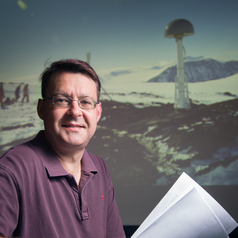
Matt King
I am Professor of Polar Geodesy and ARC Future Fellow at the University of Tasmania. My field of expertise is geodetic observation of Earth deformation and the global water cycle, including ice-sheet mass balance and sea-level change and particularly using the Global Positioning System (GPS) and the Gravity Recovery and Climate Experiment (GRACE). I also work on reduction of systematic and random errors in these techniques in order to maximise the information content in the data and improve the reliability of the interpretations. I have authored more than 80 peer-reviewed publications including several articles in the leading scientific journals Science, Nature, Nature Geoscience, Nature Climate Change and Proceedings of the National Academy of Science. In 2015 I was awarded the Royal Society (London) Kavli Medal and Lecture (see the lecture at https://royalsociety.org/events/2015/04/continental-loss).
Less ![]()
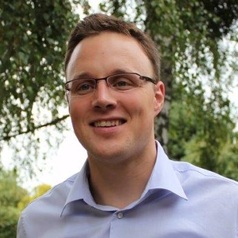
Matt Kranke
My doctoral research project studies the collaboration between the International Monetary Fund (IMF) and the World Bank from an ideational perspective. I seek to explain why, in marked contrast to parallel developments in the global political economy, the IMF and the World Bank opted to partly deinstitutionalise their collaboration after the global financial crisis.
Less ![]()
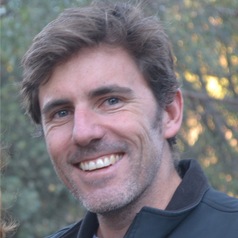
Matt McDonald
Formerly lecturer in politics and international studies at the University of New South Wales, University of Birmingham (UK) and University of Warwick (UK)
Less ![]()

Matt McGuire
Dean, School of Humanities and Communication Arts, Western Sydney University
Professor Matt McGuire is the Dean of School of Humanities and Communication Arts at Western Sydney University. He has over twenty years' of experience in the tertiary education sector of two countries - the UK and Australia.
Professor McGuire has held a number of Senior Management roles within the Australian higher education sector. These include Director of Higher Degrees by Research, Director of the Writing and Society Research Centre, and President of the Australian Universities’ Heads of English. Currently, Professor McGuire is Treasurer and a Board Member of DAASH, the Australasian Council of Deans of Arts, Social Sciences and Humanities.
Professor McGuire’s qualifications include a MA (Honours), MSc and PhD from the University of Edinburgh. He also holds an Executive MBA from the Sydney Graduate School of Management and qualifications from the Australian Institute of Company Directors and the Harvard Graduate School of Education.
Less ![]()

Matt Morison
Adjunct Professor, Geography, University of Winnipeg
Dr. Matt Morison is a Adjunct Professor of Geography at The University of Winnipeg as well as working in the Water Science and Watershed Management Branch of the Government of Manitoba. Dr. Morison holds a PhD from the University of Waterloo (2018) in Geography and Environmental Management, and a BSc from The University of Winnipeg (2012) in Mathematics and Geography.
The world’s freshwater resources face rising pressure from direct human impacts and the effects of climate change on both water quantity and quality. Climate change, winter warming, forest fire, agricultural land use, permafrost thaw, and oil sands development are just a window into the way we impact - and are impacted by - the water which we need to live.
We urgently need to understand both the state of our natural, less-impacted watersheds and freshwater bodies, as well as monitoring of areas of hard and fast disturbance to be able to make conclusive statements about the effects our activities and climate change are having on these regions. Dr. Morison believes these important research problems requires working at a variety of scales from soil grains and single trees all the way up to catchments thousands of kilometers apart, working within a big team with diverse perspectives and experiences.
Less ![]()
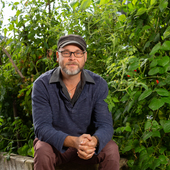
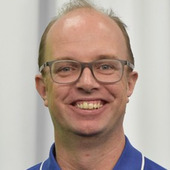

Matt Polacko
Postdoctoral Research Fellow, Political Science, University of Toronto
I am a Postdoctoral Research Fellow in the Department of Political Science, at the University of Toronto. I hold a PhD in Politics from Royal Holloway, University of London (2021). My research lies at the intersection of comparative politics, political economy, and political behaviour. I am particularly interested in the consequences of inequality on political behaviour across advanced industrialized countries.
My research has been funded by the Social Sciences and Humanities Research Council (SSHRC) of Canada, Fonds de recherche du Québec (FRQSC), and Royal Holloway, University of London.
I've published in American Behavioral Scientist; Canadian Journal of Political Science; Electoral Studies; European Political Science Review; Party Politics; Political Studies; Politics & Policy; Politics, Groups & Identities; Statistics, Politics & Policy; and West European Politics.
Less ![]()
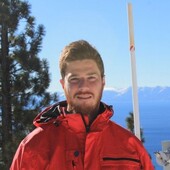
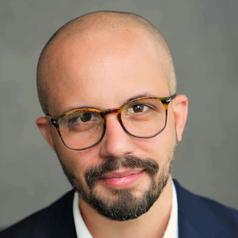
Matt Taglia
Senior Director of Emerson College Polling, Emerson College
Matt Taglia is the Senior Director of Emerson College Polling.
He has worked in polling, political communications, and political strategy since the 2012 election cycle, most recently consulting on behalf of independent expenditure campaigns for a national organization.
Prior to this, Matt was an independent pollster for private clients and media outlets across the country, specializing in mixed-mode methodology and new approaches to online data collection. He also served as the UK government’s Head of Political, Press, and Public Affairs for the Southeastern US, where he led a team that oversaw diplomatic engagement with politicians, media, and other stakeholders.
He holds his BA (Honours) in politics from Queen’s University in Canada and his MA in political science from Georgia State University, where he focused on political theory and quantitative research methodology.
Less ![]()
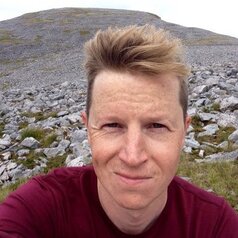
Matt Wilde
Lecturer in Human Geography, University of Leicester
Matt is the author of 'A Blessing and a Curse: Oil, Politics, and Morality in Bolivarian Venezuela' (Stanford University Press, 2023).
Less ![]()
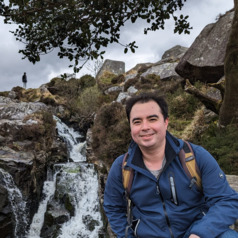
Matt J. Thorstensen
Postdoctoral Fellow, Department of Biological Sciences, University of Manitoba
I work on the genomics of wildlife, including fish and marine mammals. This work can have both fundamental importance and conservation applications.
Less ![]()

Matteo Gasparini
DPhil Candidate, Smith School of Enterprise and Environment, University of Oxford
Matteo Gasparini is a DPhil student at Oxford University's Smith School of Enterprise and Environment (SSEE) and Institute for New Economic Thinking (INET), as well as an External Advisor to McKinsey & Co. He works at the intersection between economics, finance and sustainability focusing on the impact of climate change risk and the energy zero transition on financial institutions and the broader financial stability. His research also focuses on how finance could support the energy transition and on assessing the policy implications for financial regulators and central banks. Previously, Matteo was an Associate at McKinsey & Co based in London where he supported leading financial institutions across Europe on climate, risk, strategy and analytics projects. He has also supported the European Central Bank (ECB) on various supervisory projects. Matteo holds an MSc in Financial Markets and Investment from Skema Business School in Paris, an MSc in Economics and Finance from the University of Milan-Bicocca, and a BSc in Economics from the University of Brescia.
Less ![]()
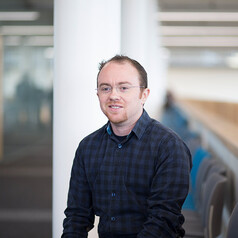
Matthew Addicoat
Senior Lecturer in Functional Materials, Nottingham Trent University
Dr. Addicoat’s research interests lie in computational combinatorial chemistry – that is using computer calculations to search and sort many thousands or even millions of possible chemical compounds, before any of them are synthesised. In particular, Dr. Addicoat is interested in applying these methods to materials chemistry, where the following three types of materials are of current interest:
Molecular Framework Materials – Molecular Framework Materials, such as Metal Organic Frameworks (MOFs), Covalent Organic Frameworks (COFs) and Zeolitic Imidazolate Frameworks (ZIFs) are highly porous materials made by stitching together various metal or organic “nodes” (corners) with organic “linkers” (edges) to create 2D and 3D frameworks. These materials typically have high surface area, tuneable pore size and changeable functional groups leading to possible applications in fields such as gas adsorption and separation, catalysis and sensing. Given the hundreds of different networks and the effectively infinite number of molecules that can be used to create a framework material, identifying the optimum framework by chance is highly unlikely.
Ionic Liquids – Ionic liquids (ILs) are liquids comprised entirely of ions, differentiated from typical ionic salts by having melting points below 100 oC. IL melting points are low because electrostatic interactions between component ions are weaker, and crystal lattice packing is hindered. This is typically achieved by making at least one of the ions large, unsymmetrical and organic. The physicochemical properties of ILs can be tuned through a judicious choice of ions. This flexibility has driven wide-ranging research into their use as solvents in green chemistry, energy and electrochemical applications, pharmaceuticals and lubricants.
Transition Metal Clusters – Small clusters of transition metal atoms in the sub-nanometre range have been shown to catalyse a number of environmentally important reactions – e.g. the oxidation of CO and reduction of NO. However, the properties of these clusters are very difficult to predict, and adding or subtracting a single atom can change the reaction rates by several orders of magnitude.
Less ![]()
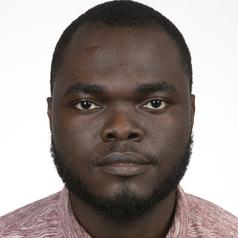
Matthew Adeleye
Assistant Professor of Physical Geography, University of Cambridge
I am a lecturer in Palaeoecology and Quaternary Science. My research focuses on understanding long-term interactions between terrestrial ecosystems, climate and Indigenous land use from centennial to millennial times scales and how the knowledge of this deep-time interactions can assist in addressing contemporary ecological/biodiversity issues.
Less ![]()
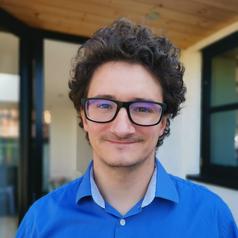
Matthew Aldrich
Associate Pro Vice Chancellor Employability and Opportunities and Associate Professor in Microeconomics, University of East Anglia
An applied labour market economist, my research has examined the value of degrees and the role of soft skills, to fatherhood and the role of family friendly policies in promoting gender equality, and intersectional equalities in driving lack of access to government support. With a strong interest in Graduate Outcomes and student employability, I am currently Associate Pro Vice Chancellor for Employability and Opportunities at UEA, with strategic oversight of our institutional strategy for employability, with a focus on teaching and learning and the wider student experience, Welcome Week and building learner communities, and placement activity.
Less ![]()
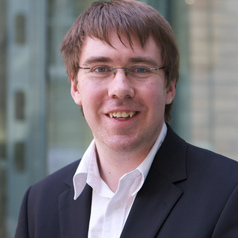
Matthew Ashton
I'm a lecturer in politics and the media at Nottingham Trent University. I did my BA degree in politics at NTU before taking a Masters in Politics and Contemporary History at Nottingham. I returned to NTU to do a Phd on the German part system passing my viva in 2009.
My current research interests lie in the area of the British and American political and media system.
Less ![]()

Matthew Barnfield
Postdoctoral Research Fellow, School of Politics and International Relations, Queen Mary University of London
Matthew joined Queen Mary University of London as a Postdoctoral Research Fellow in October 2023, supported by a British Academy Postdoctoral Fellowship. He previously held an ESRC Postdoctoral Fellowship at the University of Essex.
He holds a BA in Modern Languages and European Studies and an MRes in Politics and International Relations from the University of Bath, and was awarded his PhD at Queen Mary University of London in 2021.
Matthew’s research is in the field of political psychology and political behaviour. His British Academy project addresses the role of the future in democratic politics: how we think about the political future, what we want it to be like, and how that shapes the choices we make together. His PhD focused on closely related questions about how voters form expectations about election outcomes and how those expectations relate to their voting behaviour.
Less ![]()
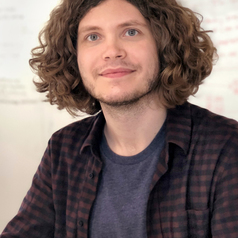
Matthew Beach
Doctoral Scholar, Geography, Queen Mary University of London
I am an artist-researcher working at the intersection of discourses around place, the photographic, and care in more-than-human worlds. My practice spans between more ‘normative’ humanities research outputs in the form of research publications and conference presentations, as well as artistic outputs in the form of printmaking, sculpture, and experimental films/filmic essays.
I maintain broad discursive interests around materialisms, ethics of care, more-than-human enquiry, science and technology studies, and participatory art models and criticism. Recently these areas have been focused on the colonial legacies of houseplants and on jellyfish economies.
Currently a doctoral scholar within the School of Geography at Queen Mary, University of London, my thesis (working title - Connective Tissue: (Un)lively Materialities of Gelatinous Life) considers the intersections between legislation, ethics, and naturecultures in mapping the material and social life of gelatine, collagen, and their related commodities. Gelatine and collagen are animal agriculture (by)products extracted from connective tissues in the form of odourless/tasteless granules or powder. It accomplishes this through three approaches: (1) charting the development of global gelatine/collagen markets by engaging with a selection of historical and contemporary production and consumption practices; (2) focusing on a collaboration between a private company and university scientists working to produce/sustain a coastal jellyfish/gelatine economy in the state of Georgia in the United States; and (3) exploring the emergent world of jellyfish aquaculture and companion gelatinous zooplankton.
Less ![]()

Matthew Beard
Adjunct Lecturer, UNSW Australia
Dr. Matthew Beard is an ethicist and moral philosopher. He is currently the Writer and Content Producer at The Ethics Centre, an independent, not-for-profit organisation focused on the promotion and exploration of ethical questions.He is also an Adjunct Lecturer at UNSW Canberra's School of Humanities and Social Sciences.
Matthew was awarded his PhD from the University of Notre Dame Australia for a thesis entitled ‘War Rights and Military Virtues: A Philosophical Reappraisal of Just War Theory,’ and was the inaugural recipient of the Morris Research Scholarship from Notre Dame. He has discussed subjects including military ethics, moral injury and PTSD, cyberwar, torture, and medical ethics amongst others in book chapters, scholarly articles, radio interviews, public opinion pieces, and at academic conferences both domestically and internationally.
Less ![]()
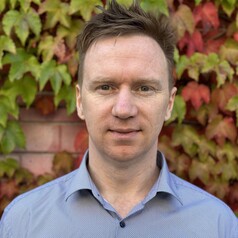
Matthew Benetti
Policy Manager (Energy), Climateworks Centre
Matthew provides expert policy advice designed to accelerate Australia’s transition to clean energy. He informs and supports Cliamteworks system teams and external stakeholders as they work to decarbonise the grid and implement net-zero industries, transport and buildings.
His experience in government, working on consumer energy resources, energy innovation and providing precise and practical policy guidance, means he is well placed to advise decision makers on the renewables transformation.
Previously, Matthew was Head of Social Innovation at the Foundation for Young Australians where he built the capacity and capabilities of young people leading social and environmental impact enterprises. He was also CEO of the Human Rights Arts and Film Festival and Director of Fundraising and Development at Ovarian Cancer Australia.
Matthew graduated from Curtin University with a Master of Environment and Climate Emergency (with Distinction) and holds a Bachelor of Commerce and a Bachelor of Behavioural Science from Griffith University.
Less ![]()

Matthew Bond
Lecturer in Social Sciences, London South Bank University
My research is focused on the social characteristics and political behaviour of elites. I also have experience doing health services research. I have been published in The British Journal of Sociology, The Journal of British Studies, Sociology, Political Studies, Voluntary Sector Research, Heart, The Journal of Public Health and The Journal of Epidemiology and Public Health among other journals. I am currently working on a project looking at the British aristocracy in the 20th and 21st Centuries. My research has been funded by the Department of Health and the ESRC
My research is primarily focused on elites. I have completed projects on corporate elites, members of the House of Lords and the hereditary aristocracy. I have examined topics including club membership, charitable donations and political donations
I am currently involved in projects evaluating Cullum Centres for autistic children in Surrey and the elimination of advertising for high fat and sugary foods in Yorkshire and Humber.
Less ![]()
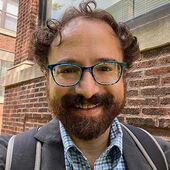
Matthew Borus
Assistant Professor, Department of Social Work, Binghamton University, State University of New York
Less ![]()
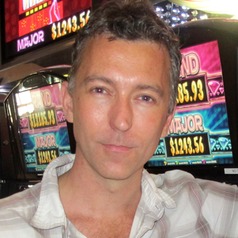
Matthew Browne
Senior Lecturer in Statistics, CQUniversity Australia
Dr Matthew Browne is a lecturer and mathematical psychologist at CQUniversity and biostatistician in the Institute for Social Science Research. He has 10 years experience in applied statistics for the biological and social sciences, and has published 33 peer-reviewed papers as journals, book chapters, client reports and conference proceedings. He has led major grant-based projects funded by the SMRJ (Japan), Australia-Japan Foundation, and the DIISR. His research interests involve the application of mathematical methods to address questions relating to human behaviour and cognitive function. His current projects include assessing player expertise via modelling the distribution of betting returns, and the investigation of explanatory factors for individual differences in gambling consumption.
Less ![]()
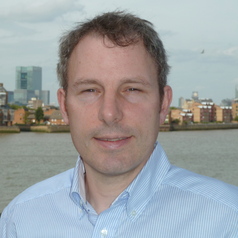
Matthew Carmona
Matthew Carmona is Professor of Planning and Urban Design at the Bartlett School of Planning, UCL. He has previously lectured at the University of Nottingham and before that worked as a researcher at Strathclyde and Reading Universities and as an architect in practice.
His research has focused on the policy context for delivering better quality built and natural environments, having worked on a range of research projects examining:
design policies and guidance
design coding
residential design and development processes
delivering urban renaissance
the value of urban and architectural design
the working relationships between housing providers and planners
measuring quality in planning
managing external public space
local environmental quality and standard
London squares and high streets
governance of design, the case of CABE
Matthew is on the editorial board of ‘Urban Design Quarterly’, is European Associate Editor for the ‘Journal of Urban Design’, and edits the ‘Design in the Built Environment’ book series for Ashgate. He is a regular advisor to government and government agencies both in the UK and overseas and writes a column for Town & Country Planning, the journal of the Town & Country Planning Association. He is a Design Council CABE Built Environment Expert.
Between 2003 and 2011 Matthew Carmona served as Head of the Bartlett School of Planning.
His book "Capital Spaces: The Multiple Complex Public Spaces of a Global City" is published by Routledge: http://www.routledge.com/books/details/9780415527095
Less ![]()
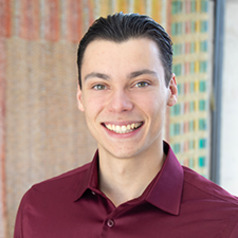
Matthew Cerilli
Master's Student, Political Science, McMaster University
Matthew Cerilli's time at York University involved serving as a research assistant with a focus on government ethics in Ontario. He took one of the few public sector ethics courses available at Canadian universities, where he explored conflicts of interest among elected officials, examined ethics laws and structures at both federal and provincial levels, and conducted a detailed research project on conflict of interest violations by Prime Minister Justin Trudeau. Now pursuing a master's degree in Political Science at McMaster University, Matthew continues to concentrate on ethical governance and public accountability.
Less ![]()

Matthew Cherisch
Associate Professor at the Wits Reproductive Health & HIV Institute, University of the Witwatersrand
Matthew is an epidemiologist and has done research in South Africa and East Africa as well as with international organisations in Switzerland and Belgium. As an alumnus of the Faculty of Health Sciences (MBBCh 1998; DTM&H 2002), Matthew has strong research links with the University of the Witwatersrand, including posts at the Reproductive Health and HIV Research Unit, and Perinatal HIV Research Unit.
He has about 110 publications, seven academic qualifications from leading institutions (including a doctorate in medical science) and international standing as a researcher and technical writer. Matthew also holds an appointment as visiting professor in the Department of Obstetrics and Gynaecology at the University of Ghent and frequently provides technical advice to the World Health Organization and other international organisations.
Research interests include maternal health and prevention of mother-to-child transmission of HIV; investigation of associations between alcohol, sexual behaviour and HIV; and the prevalence and meanings of vaginal practices in Africa, and their relation to HIV acquisition.
Less ![]()
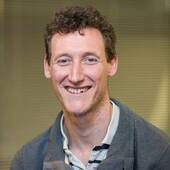
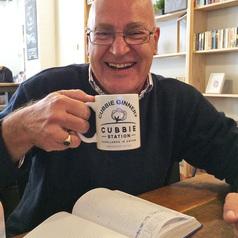
Matthew Colloff
Honorary Senior Lecturer, Australian National University
Matthew Colloff Is an Honorary Senior Lecturer at the Fenner School of Environment and Society, The Australian National University. His research is on adaptation to climate change, ecosystem ecology and water policy. He is a founding member of TARA, the Transformative Adaptation Research Alliance, a global research network dedicated to changing approaches for adaptation to global change.
Less ![]()
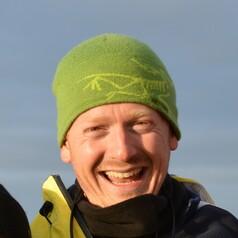
Matthew Corkill
PhD candidate, University of Tasmania
Matthew Corkill is a PhD candidate at the University of Tasmania studying Antarctic sea ice. He is looking at the structure of features like ice crystals and brine channels inside sea ice and how these interact with trace amounts of metals, especially iron which is needed by the microscopic plants in the ocean.
Less ![]()
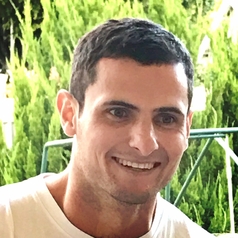
Matthew Crocker
PhD Student in Economics, Deakin University
I am a PhD student exploring the history of Australia's monetary system.
I have a strong research interest in better understanding the reality of fiat monetary systems and how sovereign governments can use their position as a currency issuer to pursue policies to benefit the public.
Less ![]()

Matthew Cull
Interdisciplinary Research Fellow in Biomedicine, Self and Society, The University of Edinburgh
My research mainly focuses on the nature of the social world, and how it might be changed for the better.
I’m working on a variety of issues at the moment:
- Contemporary transgender politics in the UK, with an eye to the role that dispossession from healthcare plays in such conflicts.
- A book for Bloomsbury, What Gender Should Be, which argues for a distinctive transfeminist position on the semantics and metaphysics of gender.
- Political and applied philosophy of language.
- (Bio)ethical and metaphysical questions about pregnancy, the family and family abolition.
Less ![]()

Matthew Davidson
Postdoctoral research fellow, lecturer, University of Sydney
I am a cognitive neuroscientist with over 15 years of experience. I research the neural basis of consciousness using virtual reality and electroencephalography.
Less ![]()
- Market Data























